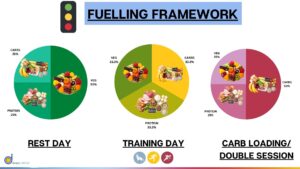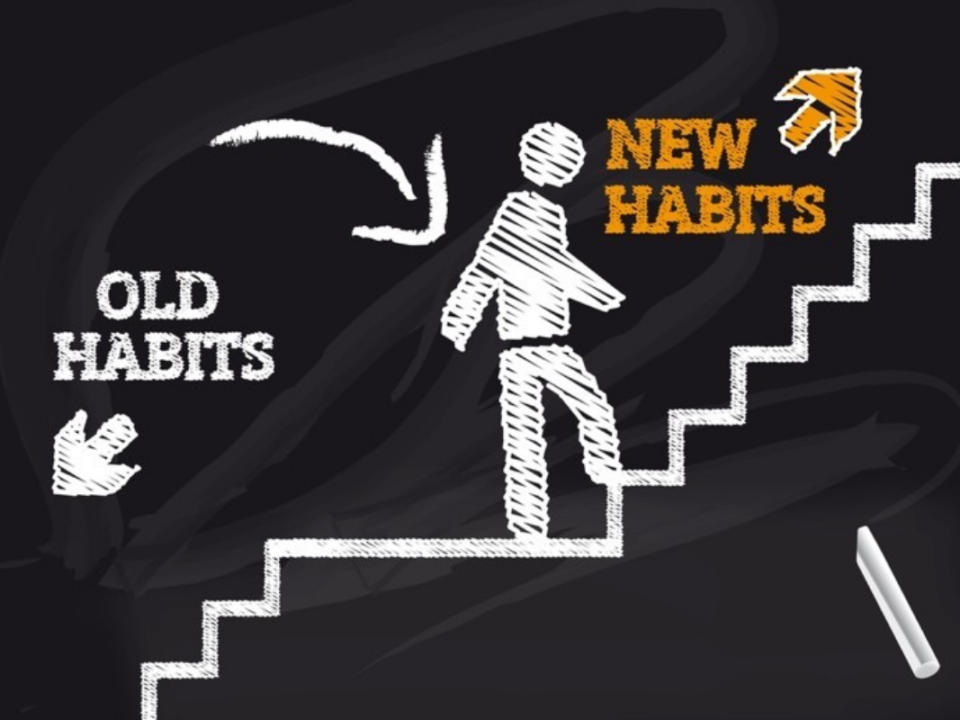Do you still need to eat the same on a rest day?
Overview:
- Rest day nutrition
- Periodising your nutrition
- Fuel and recover
- Managing appetite on rest days
While there is never a one-size-fits-all approach to performance nutrition, for the majority of people, the answer to this is no; it should adjust BUT this does not mean everything should. Fuelling for the work required is a concept used in performance nutrition, whereby athletes adjust their intake depending on the energy demands of their training session or for a competition/match. The more exercise we do at high-intensity, the more carbohydrates we need. Athletes can adjust their carbohydrate intake across their training week to support their energy demands for the particular day.

The biggest mistake we see people make when they start to grasp the concept of adjusting intake to output or periodising their nutrition intake (they mean the same thing), is they think this means reducing all key macronutrients and overall calories on rest day – which isn’t correct.
First, let’s go over the function and role of the key nutrition elements:
Protein – build and repair, recovery
Carbohydrates – Fuel the body and the brain
Colours – nourish, immune health, and anti-inflammatory
Healthy fats – protect and anti-inflammatory
Depending on the type, intensity and duration of the sport/ exercise you take part in overall energy intake may only need to be decreased by ~100-300kcals (this can vary from sport to sport). Athletes tend to be either fuelling or recovering. While you might be having a rest day, your session the following day may be high-intensity. Therefore, it’s important to consider your whole training week rather than days in isolation to make sure you are primed and ready for the session ahead. On rest days it’s important to utilise that time to get plenty of healthy fats, fruit and veg to support recovery and overall health.
When it comes to what should remain the same and what should be adjusted:
Keep the same – Meal structure, Protein
Adjust – Carbohydrates, colours, healthy fats

One mistake we see many people make is that on a rest day, they can skip meals and snacks which can have a knock-on effect on their energy levels on the next day. Secondly, they reduce their carbohydrate intake and keep the other components the same, which means the overall volume of the meal is smaller.
The trick here is to keep your meal structure the same, aiming for a minimum of x3 main meals and 1-2 snacks. Keep the volume (size) of each meal very similar but to adjust the ratios of the elements (carbohydrates and colours), which in turn changes the overall energy value of the meal.
The athletes plate nicely represents how to adjust the components of your meals depending on the type of training you are doing.

Your plate for Main meals:
Rest days: Half fruit/ veg, 1/4- 1/3 protein, 1/4 carbs
Training day (Gym/ pitch session) : 1/3 protein, 1/3 carbs, 1/3 fruit/ veg
High-intensity training day (Fuel up for a match, double session day): 1/2 carbs, 1/4- 1/3 protein, 1/4 fruit or veg.
As you can see the volume of the meal does not reduce, rather the components of the meals change.
What if you feel hungrier than normal on rest days?
It’s not unusual to feel hungrier on rest days for a few reasons.
Appetite: Exercise causes blood to flow away from the gut, to the working muscles, which can suppress your appetite and explain why many people don’t feel as hungry after high-intensity exercise. This can also lead to not eating enough throughout the day to replenish your energy stores, you may find yourself feeling extra hungry the next day.
Hormonal changes: Exercise can influence hormones like ghrelin (hunger hormone) and leptin (satiety hormone). After a workout, ghrelin levels tend to decrease, making you feel less hungry. On rest days, these hormonal fluctuations might be less pronounced, leading to increased hunger.
It’s important to remember that everyone’s appetite and response to exercise can vary, and individual factors like age, gender, body composition, and activity level can influence how hunger is experienced. If you find yourself feeling hungrier on rest days, it’s essential to listen to your body’s cues and make nutritious food choices to support your overall health and recovery. Eating balanced meals and snacks with a mix of proteins, healthy fats, and complex carbohydrates can help keep you satisfied and provide the nutrients your body needs on both exercise and rest days.
In summary, on rest day your nutrition shouldn’t change significantly. Yes, your total energy output may be lower on rest days, but if you have a heavy training load your body is still working hard to recover and you need plenty of nutrients and energy to support this. Rest day is about continuing to eat well to promote muscle recovery and growth and prepare your body for your next session. Your focus on rest will shift to more nutrient-dense, whole foods, incorporating more wholegrains, fruit and veg and healthy fats and your carbohydrate intake will reduce slightly.







